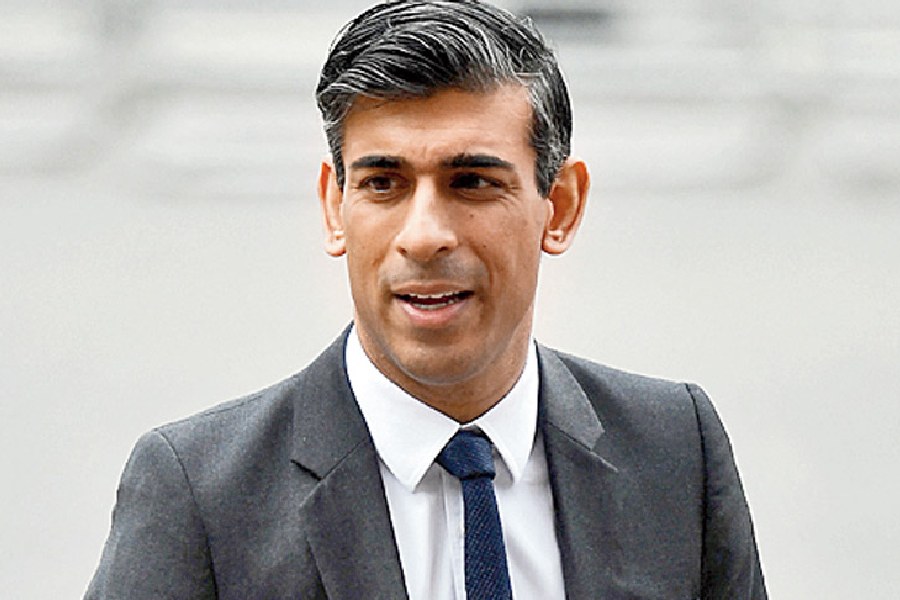When Greenpeace activists draped Prime Minister Rishi Sunak’s baronial country house in black fabric last month to protest his energy policies, public reaction focused on the troubling lapse in security. But on another level, the stunt showed that Sunak’s brand of hard-edge politics was hitting home in Britain.
Greenpeace said it was outraged by the government’s decision to issue new licenses for oil exploration in the North Sea — part of a retreat on climate policy that is edging Britain away from its ambitious commitments to phase out fossil fuels. Sunak, who was out of the country at the time, won sympathy from many who said the tactics of the activists had got out of control.
Climate policy is one of several fronts where Britain’s beleaguered Conservative government is drawing sharp lines on emotive issues, hoping to set itself apart from the Opposition Labour Party, which, after years of Tory scandals and economic setbacks, has built a double-digit lead in polls and now increasingly behaves like a government in waiting.
Over a politically fractious summer, the Tory government has gone after London’s Labour mayor, Sadiq Khan, for his expansion of a low-emission zone for vehicles. It herded asylum-seekers onto a barge docked on the southwest coast of England. And it has showcased itself as the party of law and order, with Sunak frowning at a fearsome-looking knife used in a street crime during a visit to a London police station.
“It’s part of their strategy to provoke outrage,” said Tom Burke, a one-time government adviser who is the chairman of E3G, an environmental think tank. “You provoke outrage to reassure your base. It’s exactly the strategy Trump is pursuing in the US.”
“You’re also,” he said, “setting a trap for Labour.”
In the case of climate policy, Burke said the Opposition party had walked into the trap. A messy internal squabble over the low-emission zone broke out between Khan and the Labour leader, Keir Starmer after Labour lost a byelection — a special election for a vacant parliamentary seat — in the London suburb of Uxbridge in July. The Conservatives turned the mayor’s plan into a weapon against Labour, pointing out that it would penalise owners of older, more polluting vehicles.
Emboldened by the Uxbridge victory, the Conservatives set out to paint Labour as the enemy of car owners. Sunak ordered a review of what he called “anti-motorist” policies across Britain; an out-of-touch Labour Party, he said, did not know how much people needed their cars.
New York Times News Service











